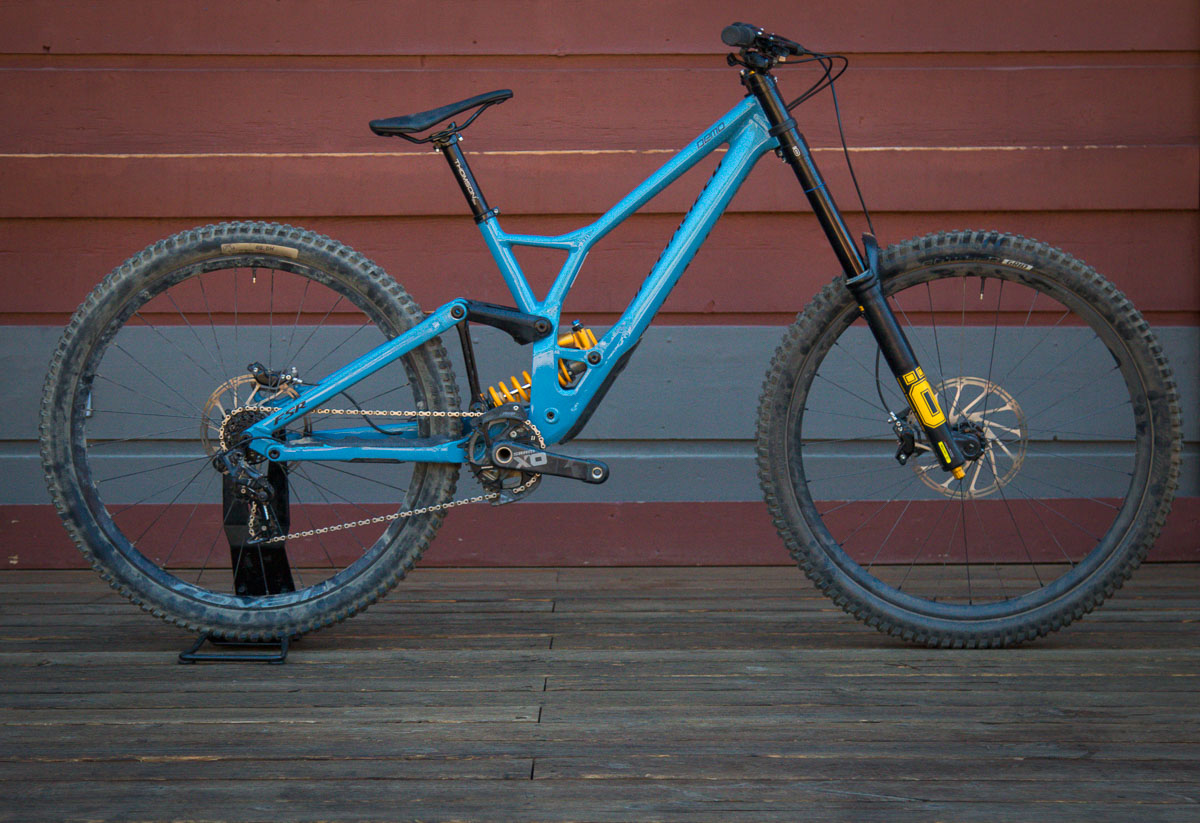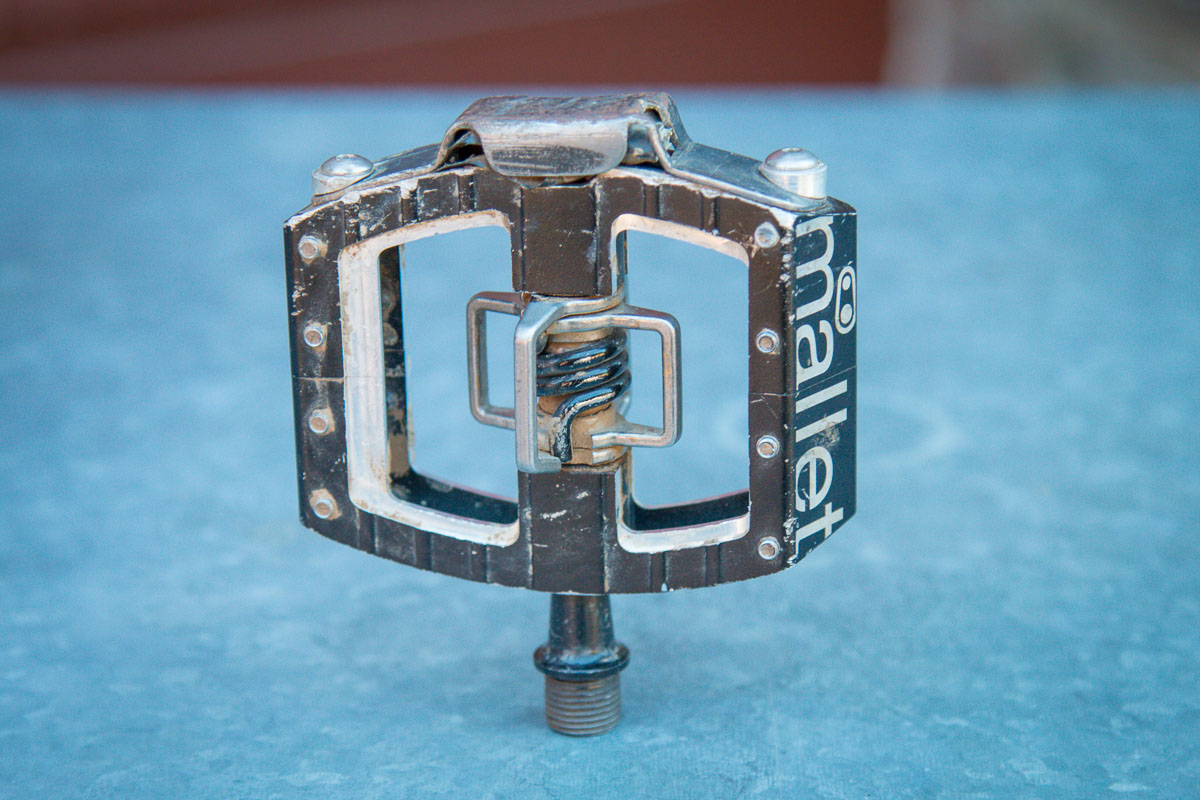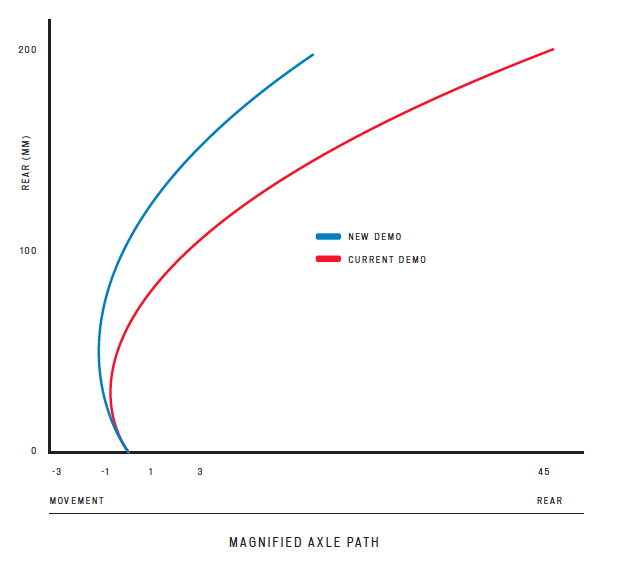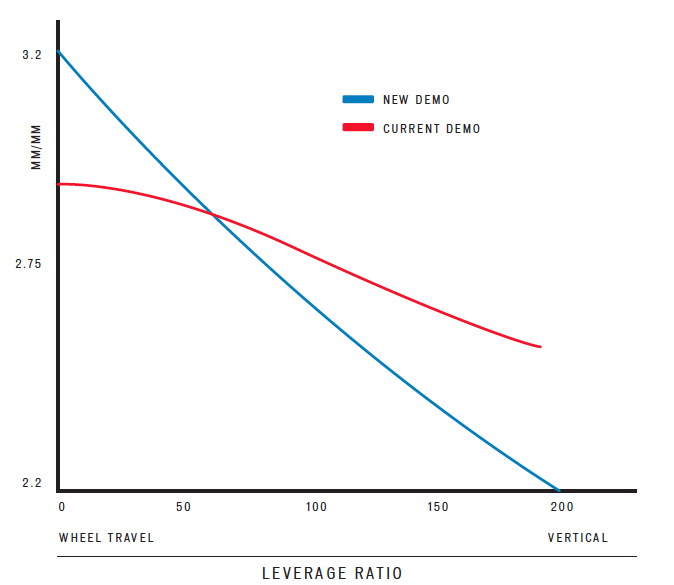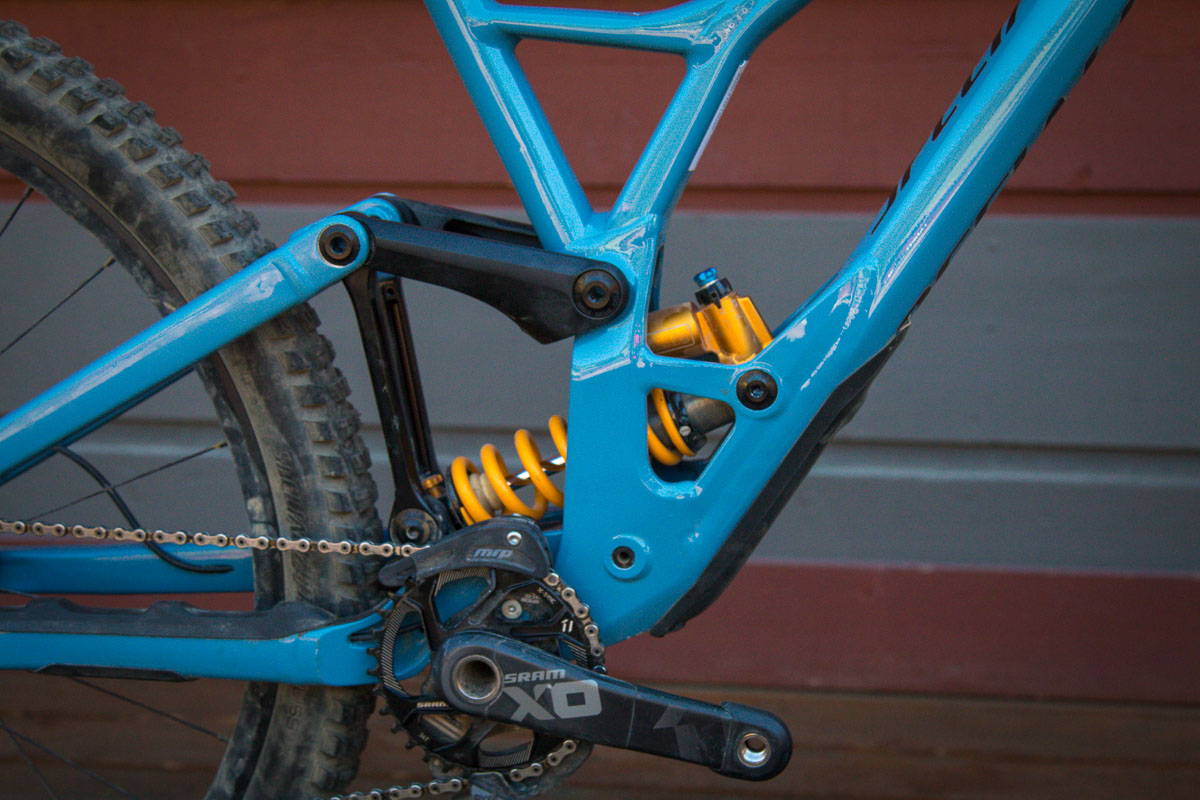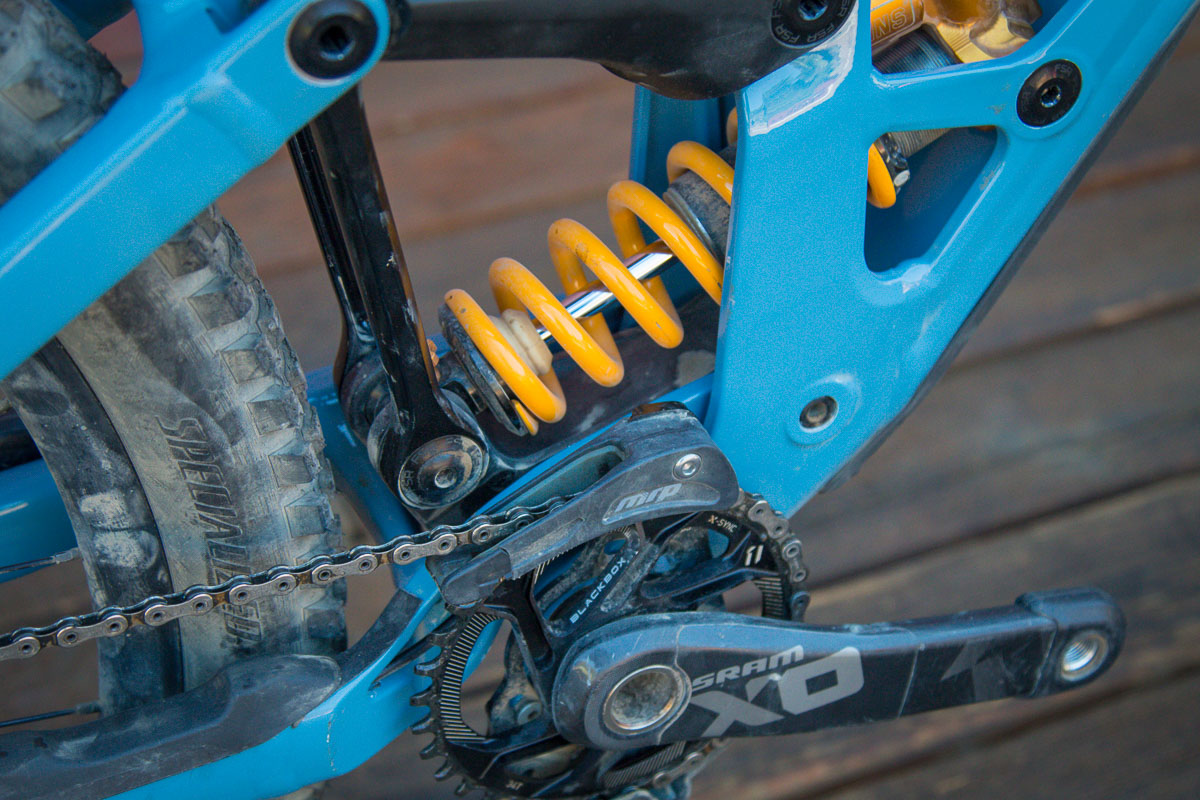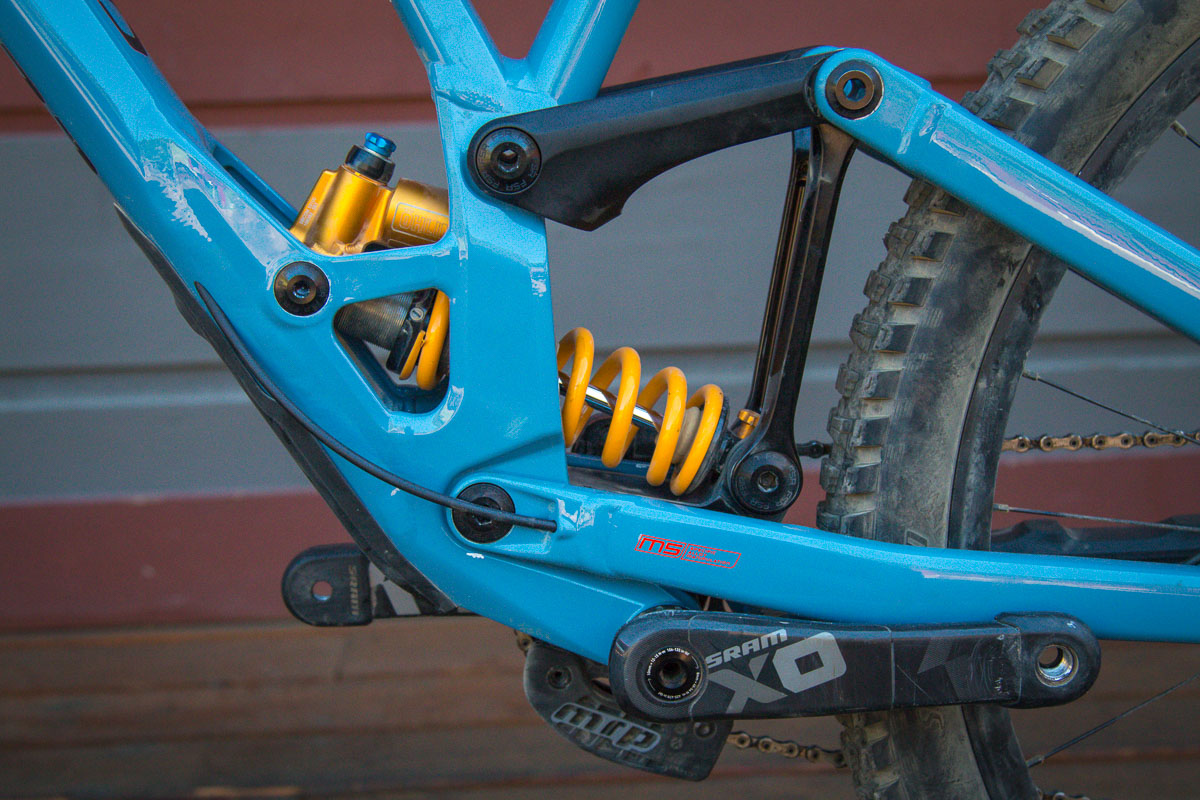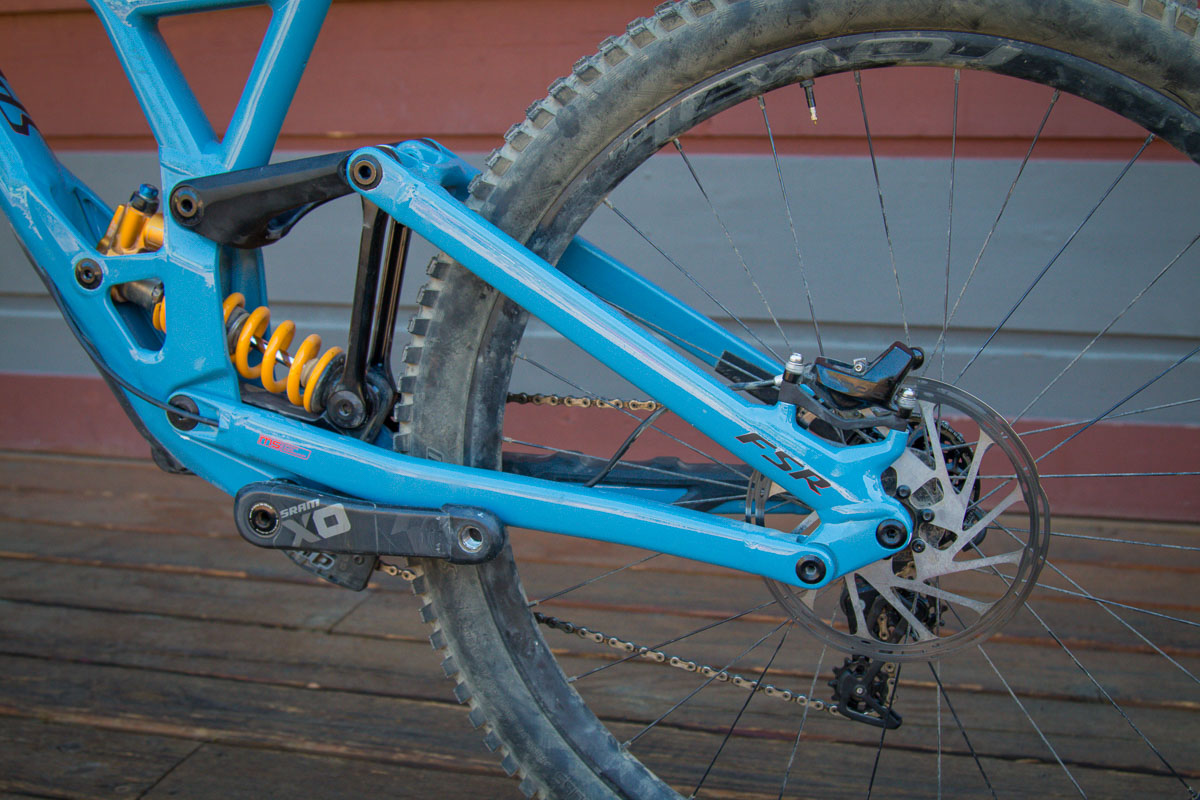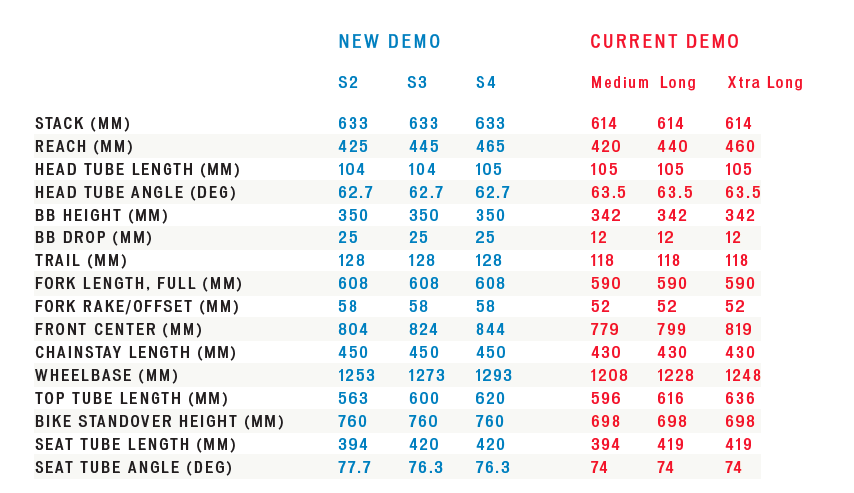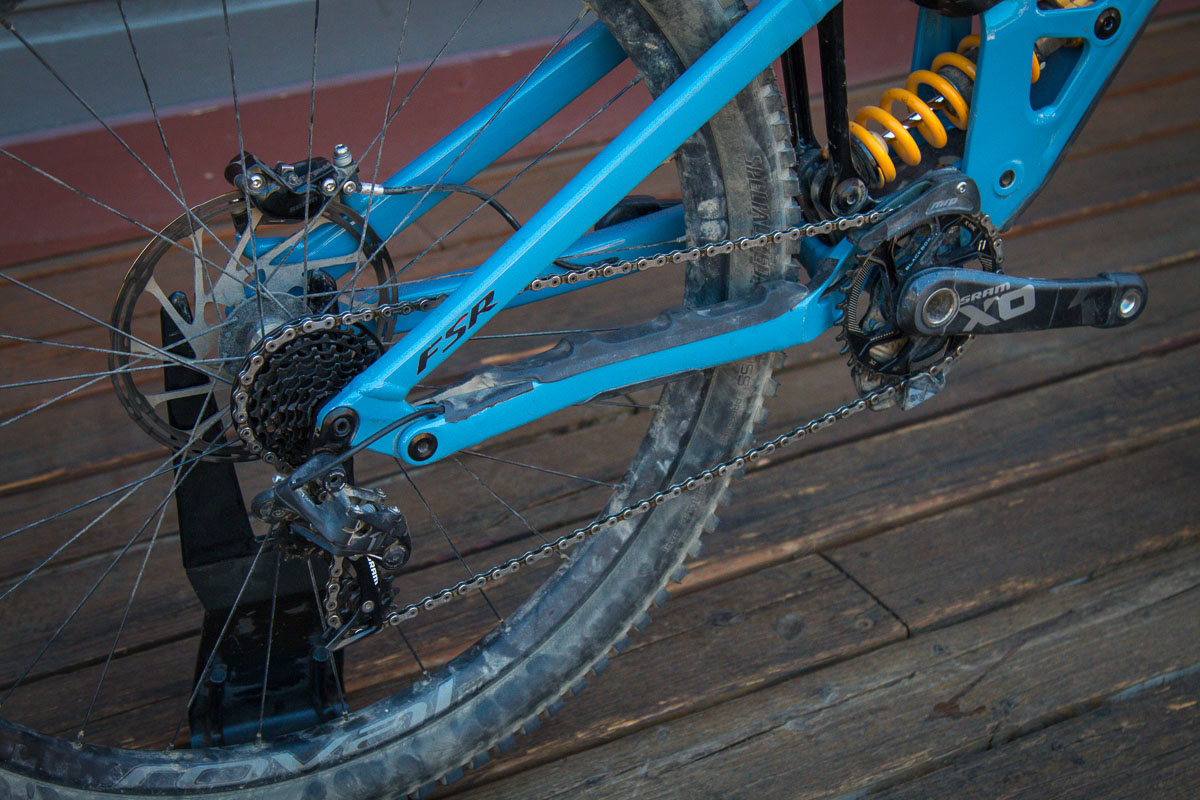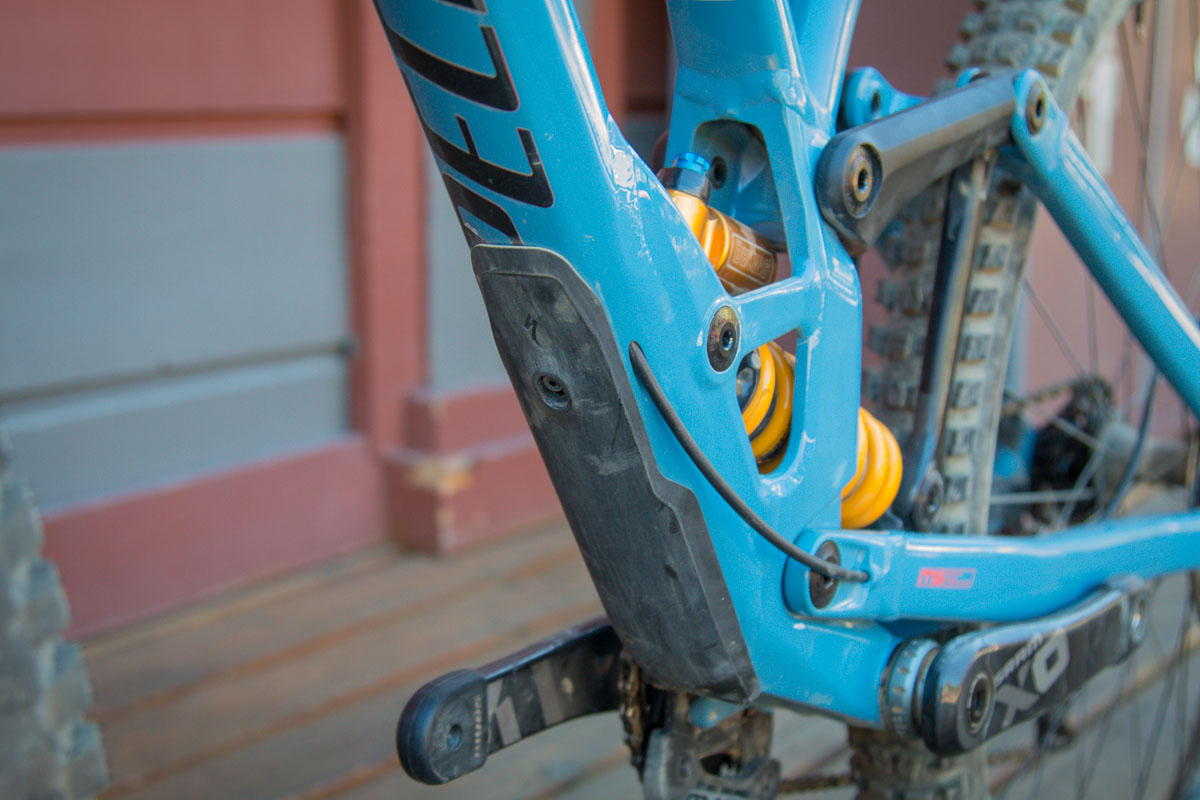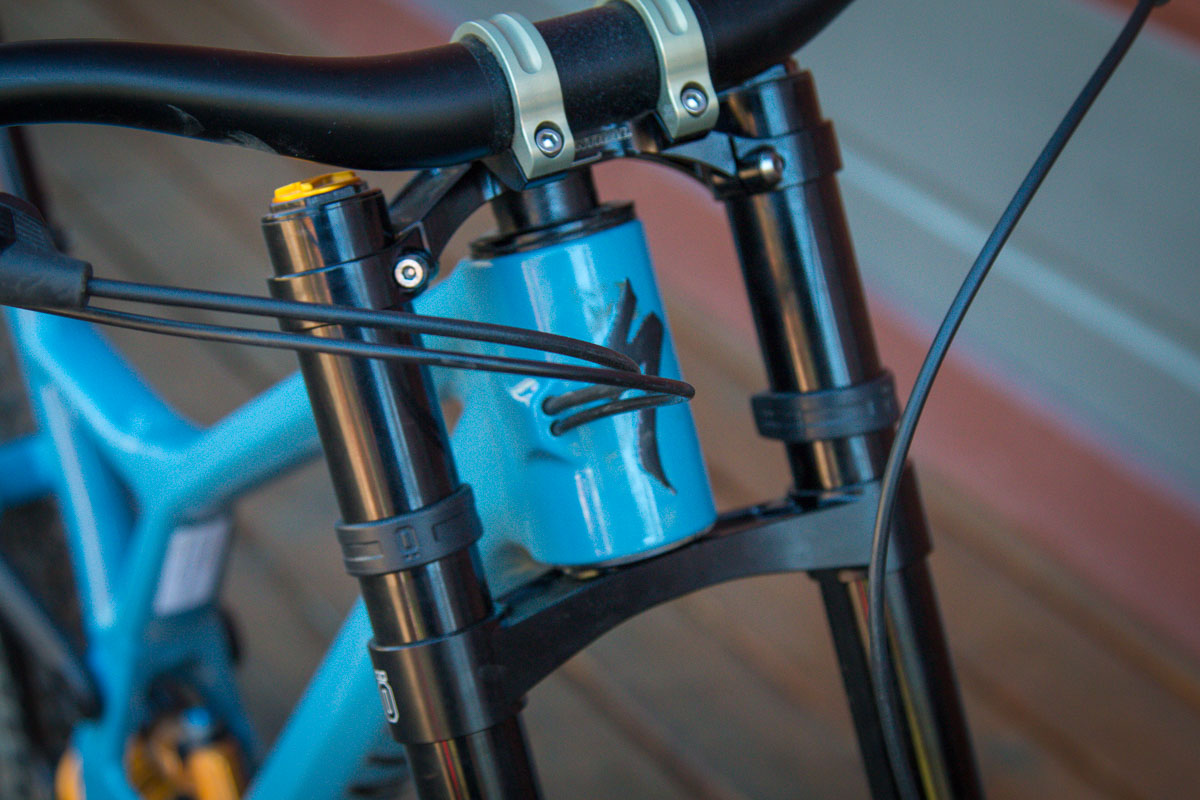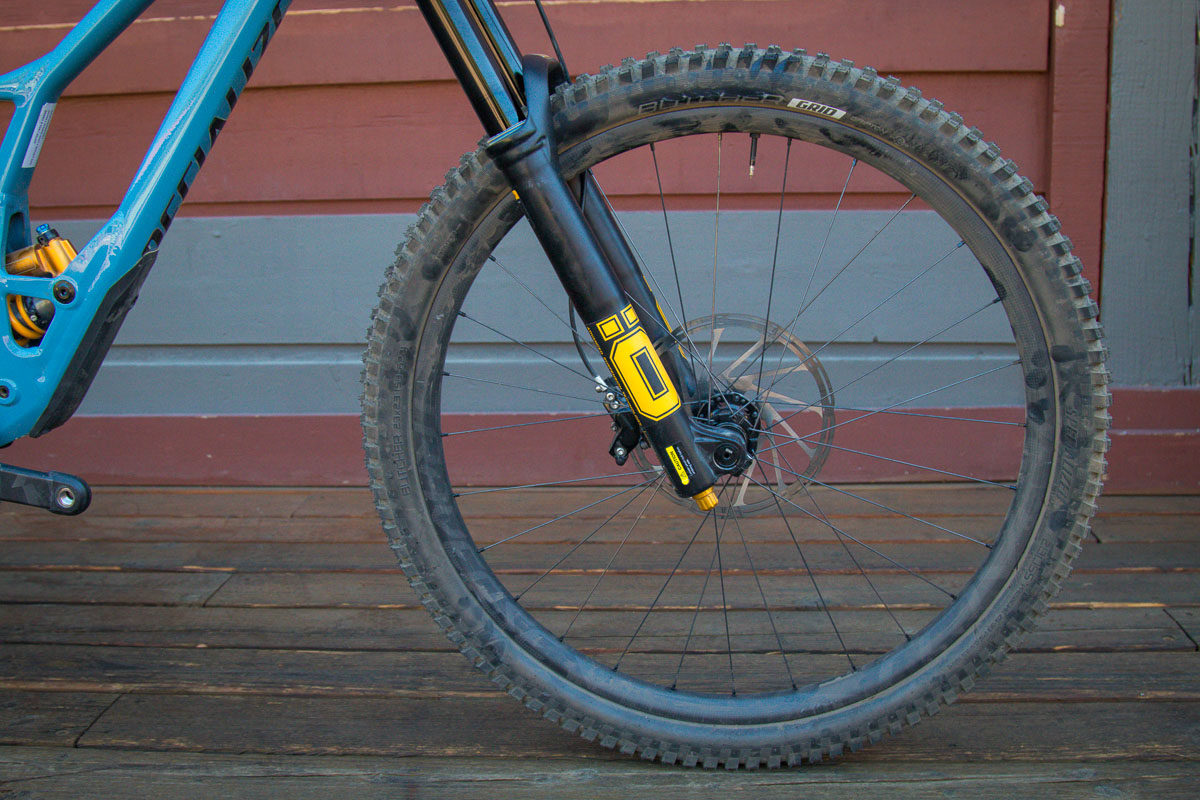Did you catch the World Cup DH race this weekend? If so, you saw Loic Bruni take his third win of the season with a victory in Vallnord. Not only was that the third win for Loic this season, but it is also the third win of the all new Specialized Demo 29. Quite a departure from the last asymmetric carbon frame design, the new bike has been developed to create a faster ride with more comfort, speed, and control. If Loic’s results have anything to do with the new Demo, it seems like they may be onto something.
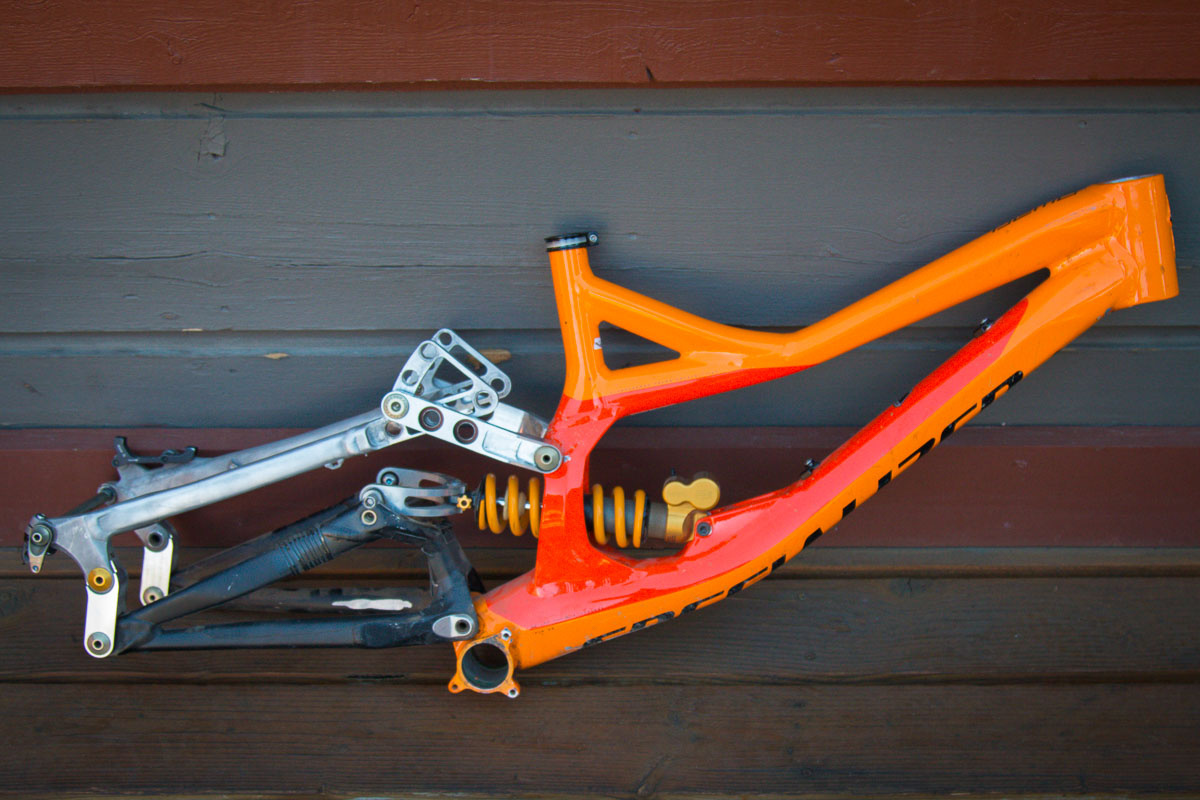
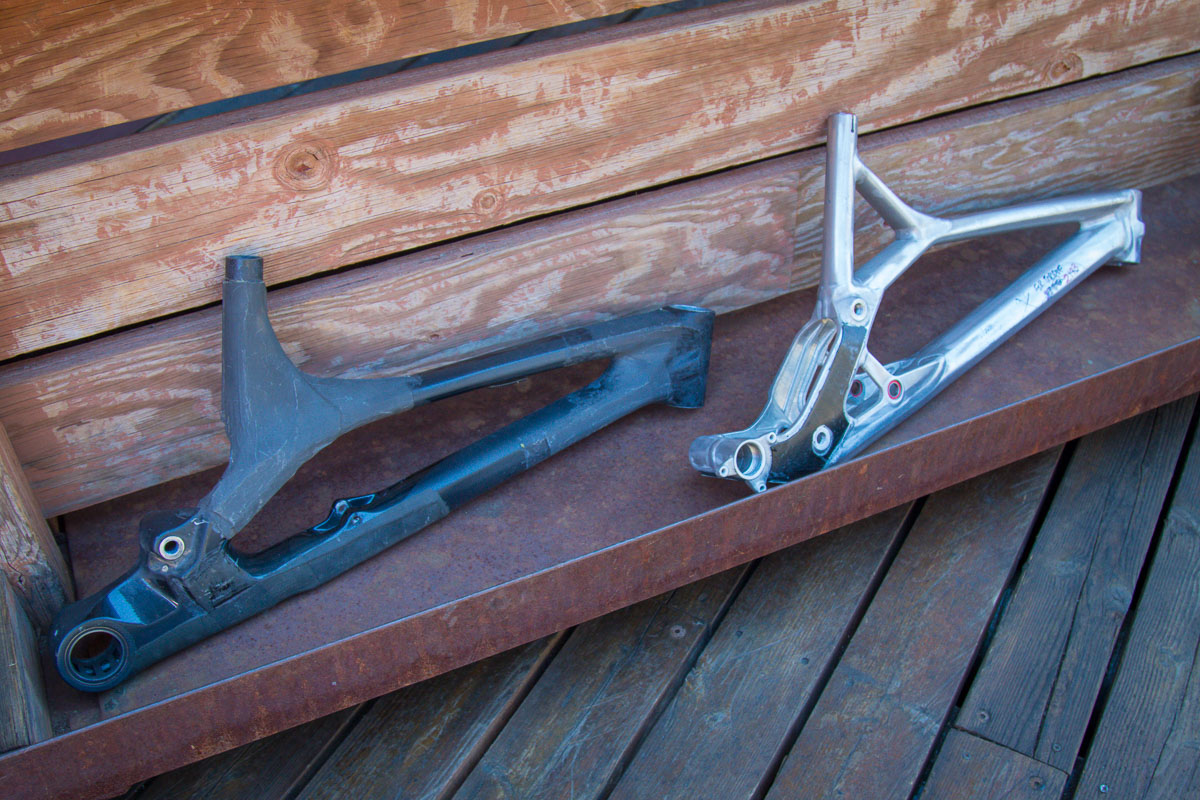
Just over a year ago, prototype Specialized downhill bikes were being spotted at events like Crankworx Les Gets. While that bike was clearly very close to the final version launching today, Specialized went through a lot of prototype iterations to determine the final layout. Based on feedback from their top riders, one of the key attributes of the new frame had to be improved momentum carry – or the ability to maintain your speed as the rear wheel hits things on the trail. 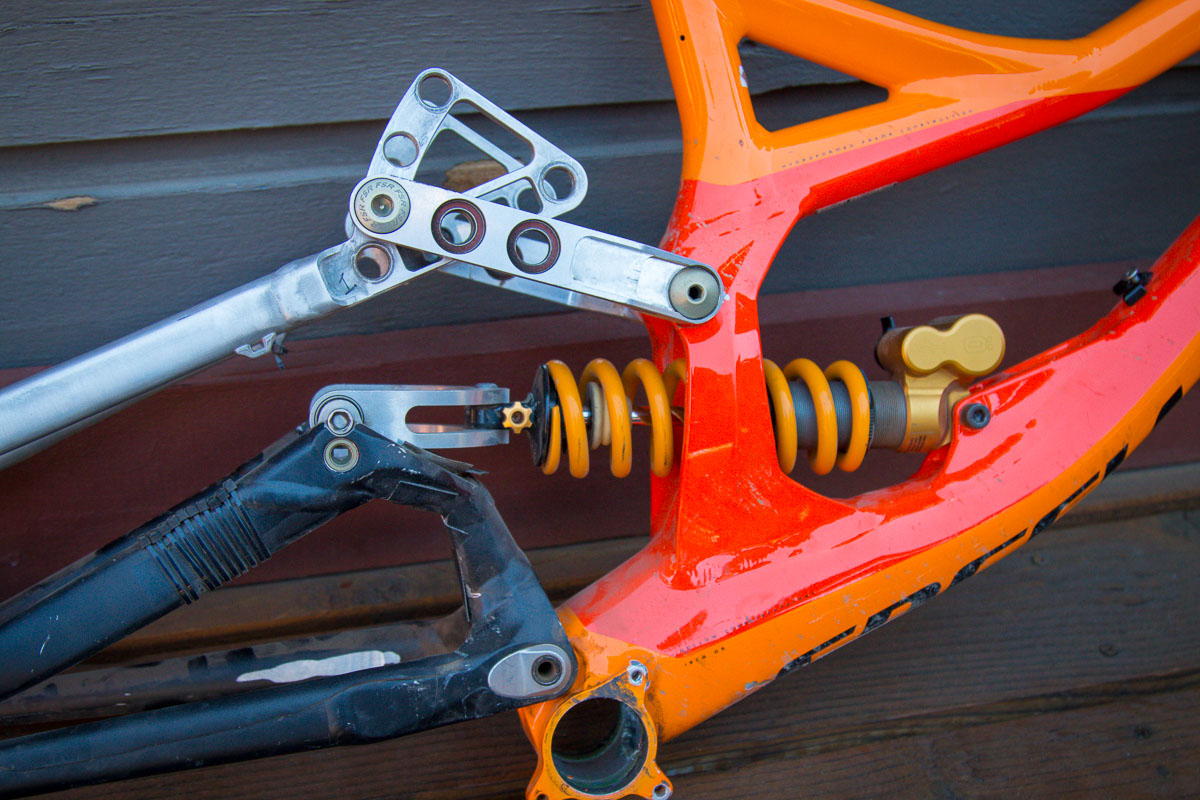
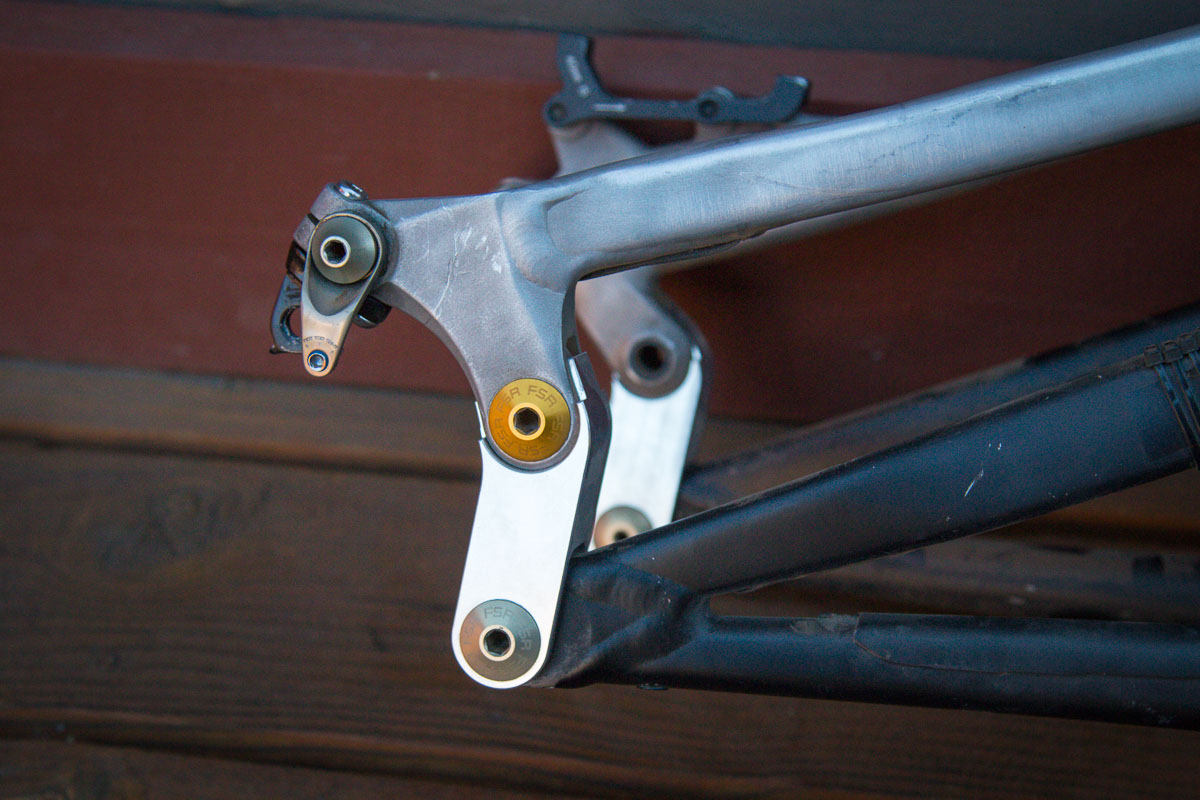 In an effort to get the rear wheel out of the way as fast as possible, Specialized started a new axle path study to examine exactly what design is best for momentum carry. One of the biggest challenges with the bigger wheels is that the bottom bracket drops more in relation the rear axle which ends up creating a more forward axle path. After testing just about everything under the sun with prototypes like the orange frame above that allowed their test engineers to create different axle paths and pivot placements, Specialized settled on a rear ward axle path.
In an effort to get the rear wheel out of the way as fast as possible, Specialized started a new axle path study to examine exactly what design is best for momentum carry. One of the biggest challenges with the bigger wheels is that the bottom bracket drops more in relation the rear axle which ends up creating a more forward axle path. After testing just about everything under the sun with prototypes like the orange frame above that allowed their test engineers to create different axle paths and pivot placements, Specialized settled on a rear ward axle path.
One of the biggest reasons for the new axle path was that Specialized riders were saying that the previous version resulted in more feedback through the pedals than they would like. But since feel is subjective, Specialized wanted a way to be able to visualize exactly what was going on at the pedals so they built a pair of pedals with accelerometers built in. The 3 axis and linear accelerometers provide a clear picture of any pedal movement related to the suspension which allowed their engineers to do some scientific testing – that just happens to involve a massive ramp built out of cargo containers and rows of 4×4 lumber.
From there, they were able to dial things in even further and land on the new suspension curve of the bike as well. The new Demo has a massive 70% increase in anti-rise. Everything is always a balance and while the previous anti-rise resulted in a suspension with excellent sensitivity, the increased anti-rise should help to prevent the rider’s weight from shifting forward when grabbing the brakes – at least according to some of the world’s fastest riders.
The suspension curve is also more progressive now for better bottom out control and ends up with 300% more anti-squat, thought that’s something that Specialized says they weren’t initially focused on.
Obviously, there is no major asymmetry here, and the frame uses a low slung shock to keep the mass low while still providing clearance for the big wheels.
The end result is an aluminum DH bike with 29″ wheels and 200mm of travel that is supposedly the fastest Demo yet. Why aluminum only? If you read between the lines, it seems like Specialized isn’t about to release a carbon Demo 29 when the team has been testing “mullet bikes” with 29″ front and 27.5″ rear wheels. It seems that when the new Demo first entered development, it was still a UCI rule that the wheels had to be the same size. Now that’s changed, and aluminum allows Specialized to more easily make changes to the Demo as it evolves into its next form.
Geometry wise, the new bike hasn’t changed a huge amount, but there are differences including a slightly longer reach and slacker head tube angle. The slacker head tube angle ended up benefiting from a revised fork offset, so Specialized got Ohlins to make them a custom 58mm offset fork for the Race model. Note that the sizing names have changed as well, moving to Specialized’ S-sizing system which focuses more on reach than seat tube size.
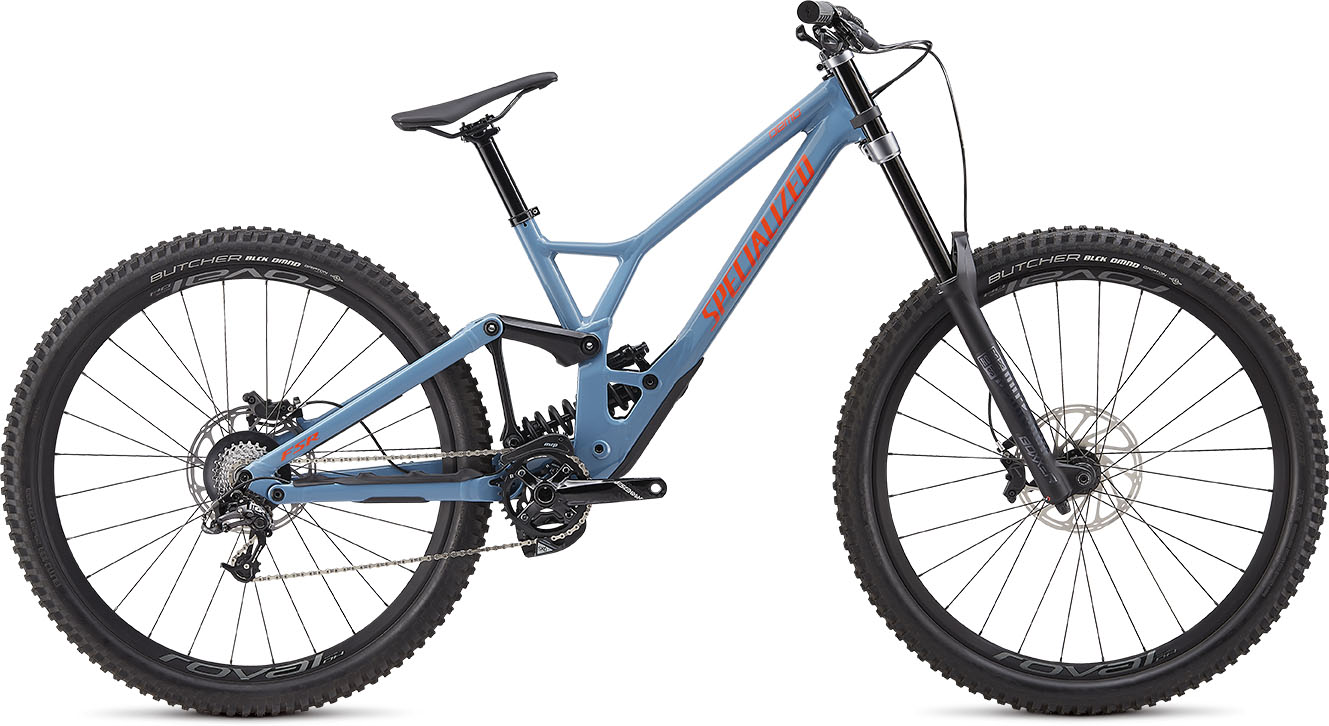
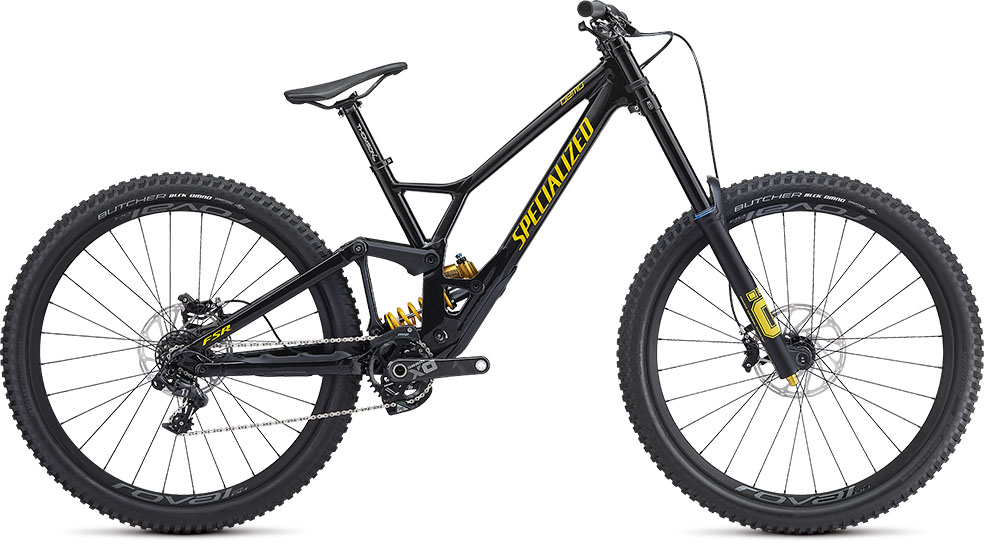
For now, that means you get two new Demo models, each with 29″ wheels and M5 alloy frames (it appears that a Demo 8 27.5″ will still be offered with the old frame design).
The frames use an 83mm BSA threaded bottom bracket, 12x148mm rear hub, a fixed headset angle, a 225×75 Metric trunnion mounted shock, and internal cable routing with the option for a full external rear brake routing.
At the high end, the Demo Race has an Ohlins DH 29 fork with a special 58mm offset, while the Demo Expert has a Rockshox Boxxer Select 29 with a 56mm offset. Both bikes run 1×7 speed DH specific drivetrain, and the bikes ship with 29 x 2.6″ rubber up front and 29 x 2.3″ rubber out back. Pricing is set at $6,500 for the Demo Race and $5,000 for the Demo Expert, and there will be a frame option as well for $2,500. Specialized states that “Demo Race framesets and complete Demo Experts will be available in limited quantities on July 9th. Complete Demo Race models and additional complete Demo Experts will follow shortly.”
